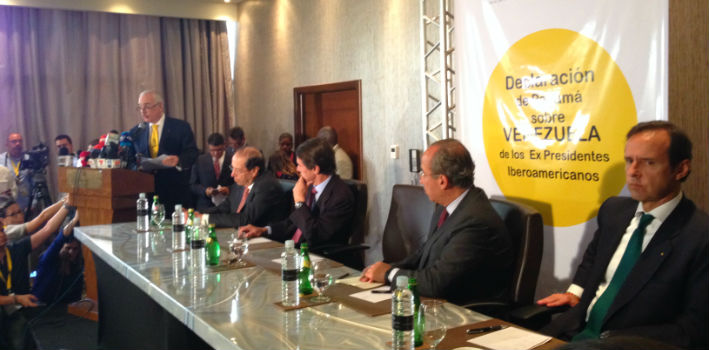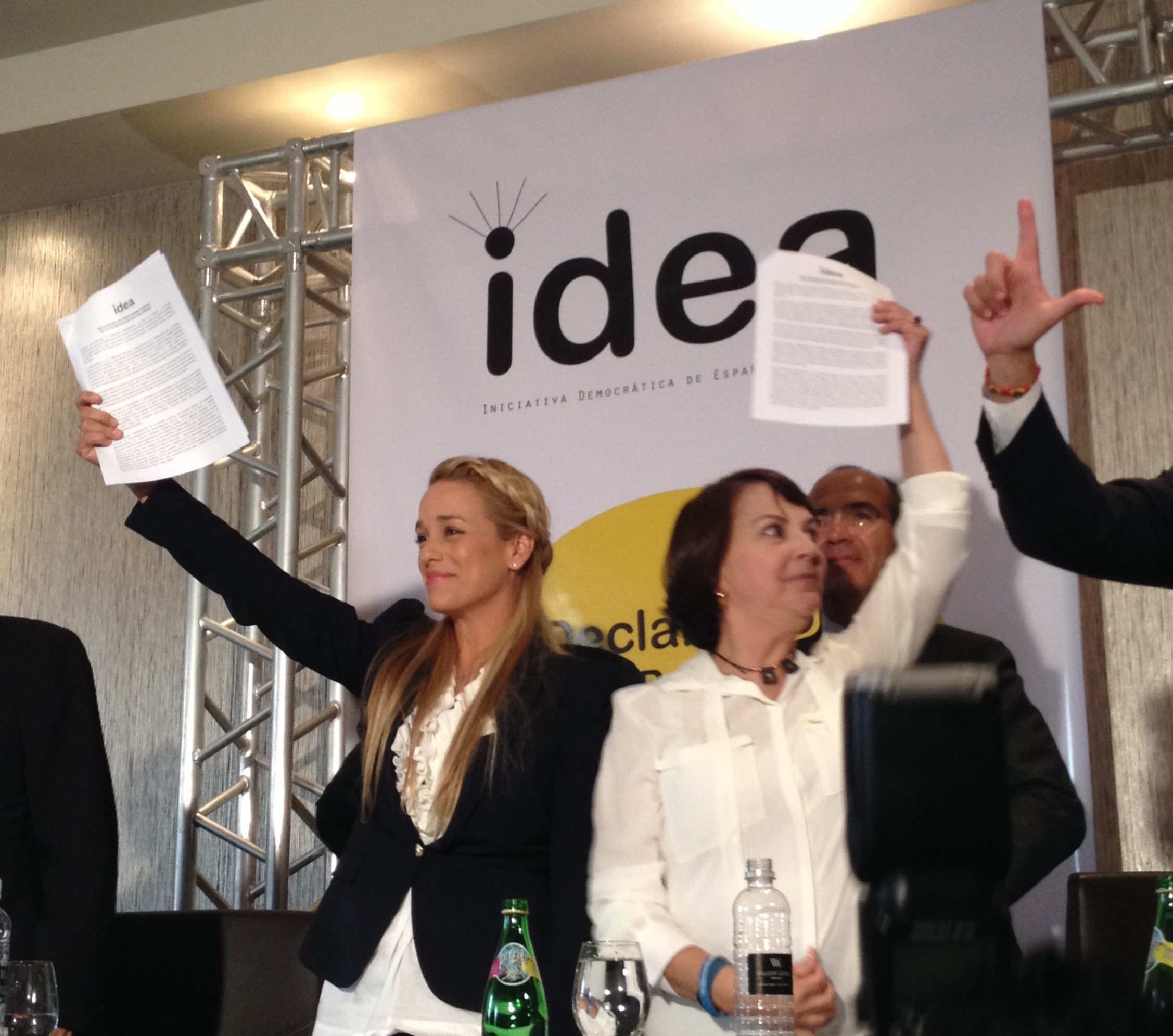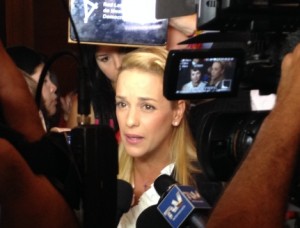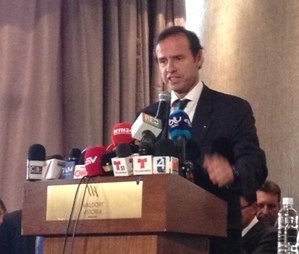
EspañolTwenty five former Latin American and Spanish heads of state have put their names to the Declaration of Panama — a clarion call demanding that the international community work to restore democratic freedoms in Venezuela, and the release of political prisoners jailed by President Nicolás Maduro.
Former Spanish Prime Minister José María Aznar and Colombia’s former President Andrés Pastrana headed the list of signatories, which was unveiled on Thursday at the seventh Summit of the Americas in Panama City by Mitzy Capriles and Lilian Tintori, the wives of political prisoners Antonio Ledezma and Leopoldo López.
Capriles and Tintori thanked the former heads of state for their act of solidarity, and warned of the need for international support for Venezuela to overcome what they called an imminent “humanitarian crisis” in the South American country.
Nevertheless, Pastrana told Colombian news outlet NTN24 that not a single head of state attending the summit was willing to officially introduce the Declaration to the Organization of American States (OAS) Summit.
The document, originally created by the NGO Democratic Initiative of Spain and the Americas (IDEA, for its acronym in Spanish), comes with the backing of former leaders of 15 countries — among them Álvaro Uribe of Colombia, Sebastián Piñera (Chile), Alejandro Toledo (Peru), Felipe González (Spain), Vicente Fox (Mexico), and former presidents of Uruguay, Costa Rica, and Panama.
In attendance for its publication were Aznar, Pastrana, Felipe Calderón (Mexico), Osvaldo Hurtado (Ecuador), and Jorge Quiroga (Bolivia).

Pastrana emphasized before assembled press and activists the ideological diversity of the Declaration’s signatories. He further criticized the current president of his country, Juan Manuel Santos, for not taking a firm step in support of the cause, describing his ambivalent position on Venezuela’s human rights situation as a “betrayal.”
Aznar similarly said that standing up for freedoms in Venezuela was a matter of moral necessity.
“It’s a mission that I consider fitting for a freedom fighter, who knows that in certain circumstances silence or inaction” amount to being “complicit,” he explained.
Aznar added that the group hoped that more former leaders would throw their weight behind the Declaration, with Pastrana reporting that they would seek the signatures of former US Presidents George H.W. Bush, George W. Bush, and Bill Clinton.
“Waylaid Democracy”
Tintori subsequently thanked the former presidents for setting aside their ideological differences to join in support of human rights. She underlined that the Summit of the Americas has become a historic opportunity to bring the situation of Venezuela before the world’s spotlight, and denounce the abuses attributed to the Maduro government.

Capriles meanwhile argued that only after the liberation of political prisoners — numbered at 80 by opposition and civil society groups — could Venezuela begin to recover its “waylaid democracy.”
Tintori warned that the country is set to confront a humanitarian crisis in a matter of weeks due to the scarcity of basic foodstuffs — principally a result of the impossibility of private imports purchasing food abroad due to exchange controls imposed by the government.
“We need international aid. No country in a world that has a crisis of the dimensions that Venezuela is facing can do so alone. We need the help of the region,” she argued.
Venezuelan Reset
The Declaration similarly proposes a series of reforms to transform the socialist system of government installed in Venezuela by Hugo Chávez and continued by his successor Nicolás Maduro.
It rejects Venezuela’s recent separation from regional human rights mechanisms, such as the Inter-American Commission of Human Rights and the associated Court, as well as the UN Working Group on Arbitrary Detention, claiming that doing so “gravely affects the right to international protection for rights enshrined in the Constitution for the benefit of all people.”

It similarly denounces the failure the independent judicial system, and the employment of the same for the persecution of political opposition, the use of torture as a state policy, the existence of government-backed armed paramilitary groups, and an atmosphere of criminal impunity, as well as calling for the immediate freedom of Ledezma, López, and Daniel Ceballos.
The document also sounds the alarm on the erosion of freedom of expression in Venezuela, mirroring a recent report by the relevant OAS Special Rapporteur, which highlighted political and judicial reforms that have weakened freedom of speech in the country.
It strikes a pessimistic note on the possibility of holding Venezuela to the essential democratic principles outlined in the Inter-American Democratic Charter, given the submission of independent powers to the executive, and the recent passage of an Enabling Law that allows Maduro to issue binding decrees on any topic, including to do with security and law and order.
Venezuela’s deteriorating economic situation is also mentioned, along with figures setting the public deficit at 20 percent of GDP. The Declaration lists a series of restrictions that private firms face in doing business in the country and blames them for flagging productivity levels.
The signatories propose an economic adjustment plan for the Venezuelan economy that would reduce public spending, lessen the financing of government projects by the Central Bank, amplify and diversify domestic production, and deregulate the economy.
The twenty five former leaders conclude by asking for impartial and accredited international observers to monitor forthcoming parliamentary elections in 2015 — and reiterate their hope that these will be preceded by the release of all political prisoners in the country.
 Versión Español
Versión Español












